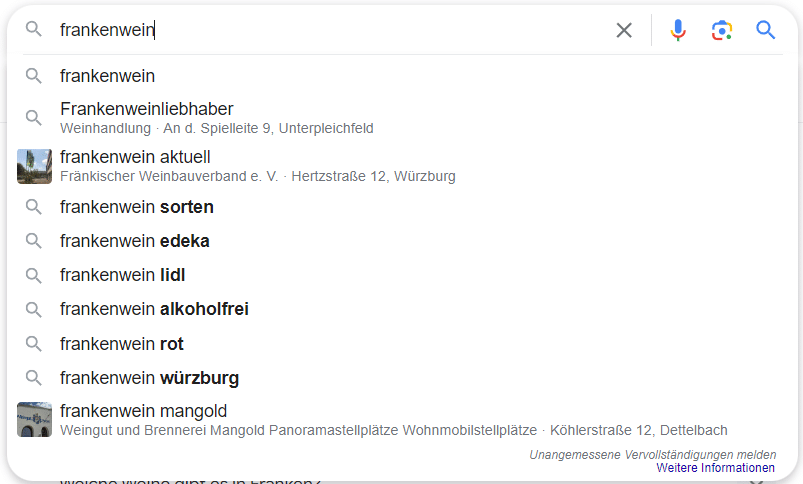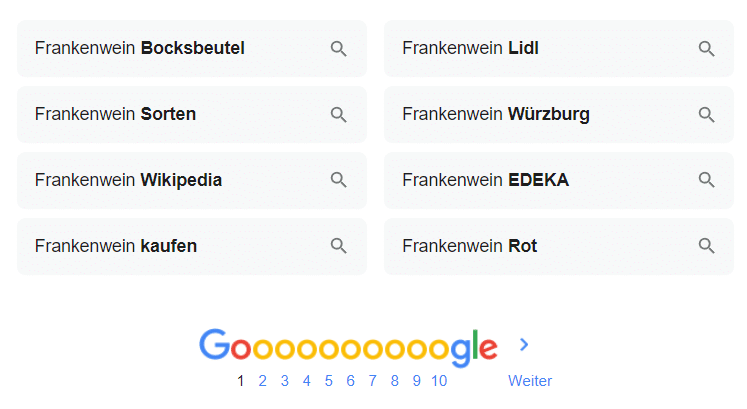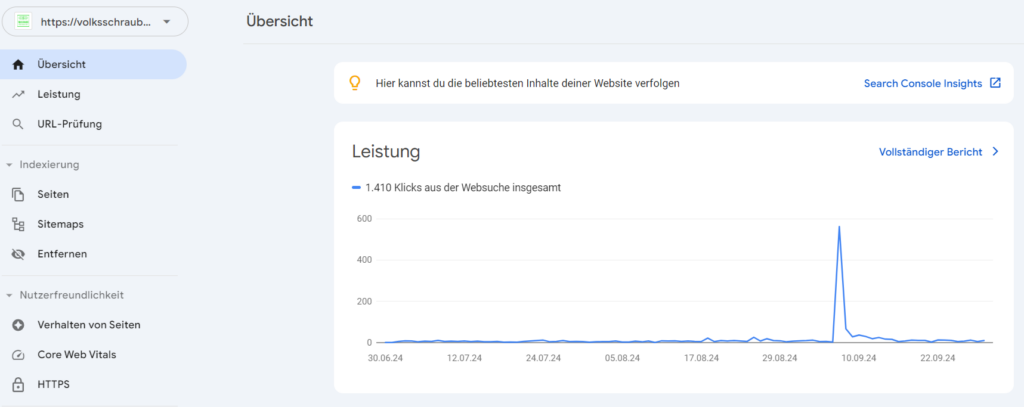Table of Contents
ToggleWhat are keywords and why should I pay attention to keywords?
In our article “Homepage search engine optimization – How to be found on Google” you learned a lot about SEO. Today we’re going to go into more detail and look at the keywords that should help you optimize your content for better quality and a better ranking in the search results. As always, the central question here is: How can I get my website to the top of Google?
Find out more in this article:
- What a keyword actually is and why keyword research is a must-have.
- How to find the right keywords for your company and select the most profitable ones.
- Which keyword tools are available and which ones support you in your keyword research.
Keywords are the words that users enter into the search field of a search engine such as Google or Bing to find web content on their search topic. These can be formulated as individual search terms (short-tail keywords) or as entire questions (long-tail keywords).
If you as a company know the search behaviour and keywords that potential customers use to search for a service or product, you can pick up on these terms and optimize your website accordingly. The Google algorithm can then categorize the content of your site thematically and include it in the index. As soon as a page is indexed, Google takes it into account in the search results.
Since Google is a big part of consumers’ lives today, indexing your website – by using appropriate keywords – is essential for your success and must be taken into account.
By the way: In the past, companies used to practice black SEO and thus “ranked” high in the search results with a meaningless string of keywords. A lot of time has passed since then, because the Google algorithm now not only pays attention to the keyword density of a page, but also to its quality!
How do I find good keywords for my website?
The focus keywords
Before you methodically delve deeper into the search for keywords, first think intensively about your core business. Use this brainstorming session to create a list of focus keywords that will later serve as the basis for expanding your keyword research.
Start relaxed and find two to three keywords that are related to the main topics of your business. For example, if you have an online store for wine from Franconia, the focus keywords could be the following: Franconian wine online store; good wine from Franconia; buy Franconian wine.
Think about what your customers would be looking for if they were interested in your service or products from your industry. Think about your competitive advantages over your competitors now. What added value do you offer?
The topic keywords
The next step is to work on keywords that are also related to your focus keywords. The best way to do this is to think about which words, questions or phrases your target audience would enter into the search field. All thoughts on this are correct at first – the selection will be made later.
For the above example with the online wine store, these topic keywords could look like this: Order Franconian wine online; how can I recognize good wine? Which Franconian wine is the best? Buy wines online from the vintner.
Tips & tricks for additional keywords
The search results page (SERP for short) of Google itself is a top source of information for keyword research. When entering the relevant keywords in the search field, Google picks up search terms and questions that have already been formulated in this way by other searchers. These can be found at the bottom of the search results page.


Another option is to find out more about the search behavior of users via the suggestions that Google provides when they enter data in the search field. Here too, Google picks up on the existing interests of searchers. However, this procedure should be carried out in an incognito browser window, as your own search behavior can also influence the search results and suggestions.
Competitor keywords and low competition keywords
True to the motto “Good stolen is often better than reinvented”, you can also take a look at your competitors’ websites. A closer look at several sites may reveal similarities and best practices.
However, it doesn’t make sense to use the exact keywords that large companies in the industry rank for. Instead, try to discover niches that you can serve particularly well with your products or services. The “low competition keywords” are suitable here. The keyword planner classifies these keywords as “low competition”, which means that the search volume is lower. If you use these search terms, you have a better chance of ranking in the search results.
Are there any tools that can help me with keyword research?
If you want to professionalize your keyword research methodically, there are all kinds of keyword research tools available.

The Google Ads keyword planner
Probably the most common keyword research tool is the free keyword planner from Google Ads. To use the keyword planner, you need a Google Ads account. The keyword planner is then listed under the “Planning” tab. Google provides this primarily for planning Google Ads campaigns. Using the keywords that Google suggests in the keyword planner, you can add text to the campaign ad or optimize the content of your website.
Note: To access the Keyword Planner, you must register your company with Google Ads and create an advertising campaign. Payment details must also be entered. However, you can deactivate the temporarily activated, paid advertising campaign at any time. To access the Keyword Planner, select the “Advanced settings” option in Google Ads.
The Keyword Planner evaluates the keywords in its list. For example, it shows how often these search terms are used by users or whether the competition for these keywords is particularly high. It also gives you an insight into how much you need to invest if you want to rank with the keyword or, ideally, if the ad containing the keyword is also clicked on(cost per click).
Keyword research in Karlscore (subject to a fee)
We at Homepage Lieferanten work with Karlscore, among others, in online marketing. Karlscore is a tool that can be used to evaluate or find keywords and content, for example. You can also use various monitoring functions and have your own content evaluated. When it comes to keyword research, Karlscore offers extensive research results that can be used to classify relevant content.
A somewhat leaner tool with fewer functions is KWFinder (for a fee) or Ubersuggest, a tool with more extensive analysis options. The Answer the Public tool is suitable for identifying long-tail keywords.
Monitoring and control of keywords
In order to achieve search engine optimization in the medium and long term, you need to continue working on your content even after the keyword research. A few weeks after the keyword measures, you should check whether you have already come closer to your ranking goals.
The best way to make reliable statements about your success is to use the Google Search Console. Google offers this service free of charge as part of your Google account. With the Search Console, you can monitor the presence of your website in the Google search results and see which keywords or search queries your site visitors have used to reach you.

Keyword research and the Google algorithm
Experience has shown that Google changes its algorithm at certain intervals and therefore also the rules according to which content ranks. Google also informs you about these changes, so you should make an effort to stay up to date.
Conclusion
Keywords – a small word, but one that involves a lot of work and ongoing maintenance. We would be happy to advise you on this and take this work off your hands if you wish!








